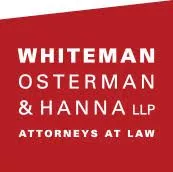- within Real Estate and Construction, Tax and Immigration topic(s)
- with readers working within the Accounting & Consultancy, Healthcare and Transport industries
The 2025 Budget includes a number of new programs and protections that benefit affordable housing developers and owners, a pilot program to provide rental assistance to individuals and families who are homeless or facing immediate loss of housing, and new measures to slow down the rate at which institutional real estate investors acquire single-family residences.
"The Governor and Legislature have created new and significant tools to address the housing crisis facing New Yorkers. As former New York State Housing Commissioner, I see great possibilities and look forward to working with our clients to put these tools to their best use in order to create and preserve housing opportunities for all New Yorkers." Brian E. Lawlor, of counsel.
The Governor's press release is available here and enacted budget overview is available here. The following is a summary of the affordable housing initiatives included that are available to new and existing projects in Upstate New York:
Funding for New Housing Programs
The budget provides funding to the Division of Housing and Community Renewal for the following housing programs:
$75 Million for PHAs Outside New York City: Funding for capital improvements of public housing authorities outside of New York City.
$40 Million for Land Banks: Funding for land banks to use toward the redevelopment of blighted and abandoned properties.
$40 Million for Vacant Unit Upgrades. Funding to upgrade vacant rental units outside of New York City.
$30 Million for Infill Housing: Funding for the development of small homes within unused and underutilized lands with existing development patterns.
$10 Million for Preserving Rural Housing: Funding for capital improvements of rural housing subsidized by the Federal USDA 515 program.
$40 Million for Vacant Apartment Repair and Rehabilitation: Funding to support the repair and rehabilitation of vacant apartments (5 units or less) outside of New York City.
$10 Million for Small Rental Properties: Funding for small multifamily rental developments ("SRDI").
$100 Million Pro-Housing Supply Fund. Funding for certified Pro-Housing Communities to assist with critical infrastructure projects necessary to create new housing. Such as sewer and water infrastructure upgrades.
$100 Million Mixed-Income Revolving Loan Fund. Funding to fill construction financing gaps for mixed-income rental development projects.
Housing Access Voucher PILOT Program.
Public Housing Law Article 14-A. The budget creates a $50 Million, four year pilot program for the Division of Housing and Community Renewal ("HCR") to provide housing vouchers to individuals and families who are homeless or face an imminent loss of housing. The program, which launches on March 1, 2026, authorizes HCR to issues vouchers to local authorities that administer federal housing choice voucher programs. Individuals and families who are homeless or facing imminent loss of housing and have a household income of no more than 50% of the Area Median Income ("AMI") are eligible for the vouchers. Immigration status does not affect eligibility. The monthly rental obligation for the individual or family receiving rental assistance will be restricted to the greater of: (i) 30% of monthly adjusted income of individual or family; or (ii) the portion of welfare assistance designated to meet housing costs, which includes shelter assistance or housing assistance administered by federal, state or local agency. Once thirty percent of an individual or family's income exceeds the total rent for a dwelling unit, the individual or family will no longer be financially eligible for the vouchers. However, the individual or family can retain the rental assistance for one year after becoming financially ineligible. The housing voucher may also be used to cover up to five months of rent arrears that accrued during prior occupancy of a dwelling unit by a voucher recipient if the payment of arrears is necessary to maintain the voucher recipient's occupancy of such dwelling unit and prevent imminent loss of housing. The housing vouchers will require leases for a term of not less than one year and the lease can only be terminated for serious or repeated breaches, violation of state or local law, or other good cause, which includes non-payment of tenant's portion of rent owed.
90 Day Waiting Period Before Institutional Real Estate Investors Can Make Offers on Single-Family and Two-Family Residences and Prohibition on Interest and Depreciation Deductions.
The budget also adds a new Article 16 to the Real Property Law which imposes a 90-day waiting period for the sale of single-family and two-family residences to institutional real estate investors. After July 1, 2025, it shall be unlawful for an institutional real estate investor to purchase, acquire or make an offer to purchase or acquire an interest in a single-family or two-family residence unless the residence has been listed for sale to the general public for 90 days. The 90-day period restarts upon a change to the property's listing price. For purposes of this law, an institutional real estate investor is an entity or combined group that, directly, or indirectly (i) owns ten or more single-family residences or two-family residences; (ii) manages or receives funds pooled from investors and acts as a fiduciary with respect to one or more investors; and (iii) has $30 million or more in net value or assets under management on any day during the taxable year. At the time of making an offer, the institutional real estate investor must submit to the seller a notarized statement affirming that the purchaser is a "covered entity" under the statute and the form must also be submitted to the Office of the Attorney General. Failure to comply with the requirements under the new law can subject the institutional real estate investors to civil damages up to $10,000.
The budget also amends the Tax Law by prohibiting institutional real estate investors or a partner, member or shareholder of an institutional real estate investor that owns single-family or two-family residences from claiming a deduction for depreciation or interest paid or accrued as allowed under the federal internal revenue code. The budget carves out an exception with respect to interest paid or accrued in a taxable year when the covered property is sold to an individual for use as a principal residence or sold to a nonprofit which purpose is the creation, development, or preservation of affordable housing.
Creation of Cease and Desist Zones
Finally, the budget amends the Real Property Law with respect to solicitation of property owners in a cease and desist zone. Under Section 442-H of the Real Property Law, the Secretary of State is authorized to make a determination that property owners within a certain geographic area are subject to intense and repeated solicitation by real estate brokers and salespersons and can adopt a rule establishing a cease and desist zone. After the Secretary of State establishes the cease and desist zone, property owners within the area can file an owner's statement with the Secretary of State expressing their wish not to be solicited by real estate brokers or salespersons or persons engaged in the regular business of buying and selling of homes. The budget amends the Law to require the Secretary of State to provide public notice of cease and desist zones on its website and to publish notice of such zones at least once a year in a newspaper of general circulation in the area affected by the cease and desist zone and to provide further notices as deemed necessary to maximize awareness to the property owners within a cease and desist zone that they may file a non-solicitation statement.
Conclusion
The measures outlined in the New York State budget represent a recognition of the need to provide additional rental assistance to prevent further homelessness and to protect the dream of homeownership for prospective homebuyers in New York. The measures also represent the recognition of the growth opportunities in Upstate New York and the need to develop and preserve affordable housing in the region. Industry professionals should consider how these provisions can benefit their projects and the communities they serve.
The content of this article is intended to provide a general guide to the subject matter. Specialist advice should be sought about your specific circumstances.




